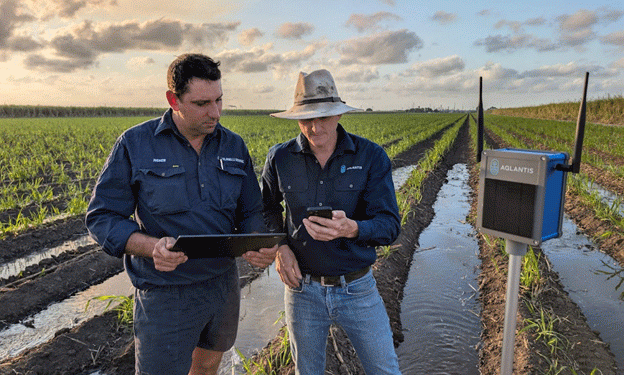A revolutionary irrigation system powered by artificial intelligence is set to transform sugarcane farming by automating water usage and improving sustainability. Developed by La Trobe University in collaboration with Far North Queensland ag-tech company Aglantis, this system optimizes water management while addressing environmental concerns such as fertilizer runoff into the Great Barrier Reef.
How the System Works
The smart irrigation system utilizes the Internet of Things (IoT) to manage water pumps and monitor environmental factors like sunlight, temperature, and humidity. Operating autonomously, it eliminates human guesswork and ensures precision irrigation tailored to crop needs. By leveraging advanced AI technology, the system can:
- Automate irrigation schedules.
- Monitor and analyze environmental data.
- Reduce water wastage and energy consumption.
- Provide actionable insights for better farm management.
Environmental and Economic Benefits
Originally designed to prevent agricultural runoff from damaging the Great Barrier Reef, this system’s applications have expanded significantly. By optimizing water use, it conserves resources and enhances crop yields. Future updates aim to integrate energy-saving features and soil analysis capabilities, enabling farmers to make informed decisions about crop selection and land management.
Luke Malan, Managing Director of Aglantis, highlighted the system’s transformative potential. “This technology takes the guesswork out of farming,” Malan said. “With growing pressures on profitability, farmers need tools that allow them to optimize every decision and resource.”
A Collaborative Achievement
The system represents the first commercial product from La Trobe University’s Cisco Centre for AI and IoT. Professor Wei Xiang, director of the center, emphasized its role in demonstrating how industry-driven research can deliver impactful solutions. “Our goal is to enhance productivity and sustainability through cutting-edge AI technology,” Xiang explained.
IoT researchers Kamyar Karimi and Aravindan Madasamy, key developers of the system, highlighted its practical advantages for farmers. These include:
- Reduced labor costs: Automation minimizes manual intervention, allowing farmers to focus on other priorities.
- Improved precision: Intelligent sequencing optimizes irrigation timing and reduces resource waste.
- Predictive maintenance: The system learns from historical data to anticipate issues and improve reliability.
Real-World Impact
The smart irrigation system is already operational on an 80-hectare sugarcane farm in the Burdekin region near Townsville. For veteran farmer Mark Castelanelli, the benefits are clear. “This system saves labor costs, increases efficiency, and gives me more time to focus on other aspects of farming,” he said. Previously, Mark spent significant time and fuel managing irrigation manually. Now, precision irrigation is just a click away.
Towards a Sustainable Future
The system’s ultra-compact design, precision valve control, and scalable functionality make it a game-changer for modern agriculture. Future updates promise even greater advancements, including continuous learning capabilities and energy optimization based on solar or tariff conditions. This aligns with broader goals of creating data-driven, sustainable farming practices that benefit both farmers and the environment.
AI-powered smart irrigation systems like this one represent a significant leap forward for agriculture. By combining sustainability with precision technology, these innovations empower farmers to optimize resources, reduce environmental impact, and improve profitability. As technology evolves, tools like this will play a critical role in addressing global challenges in agriculture and food security.







